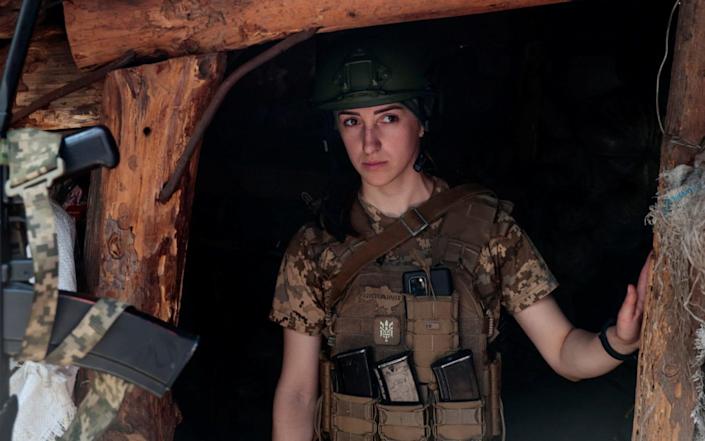
Vladimir Putin will not use nuclear weapons in the conflict in Ukraine, Russia’s ambassador to the UK has claimed.
Andrei Kelin told the BBC that there were “very strict” rules on their use, with nuclear missiles only allowed to be deployed “when the existence of the state is endangered”. “It has nothing to do with the current operation,” he said.
Speaking on the BBC’s Sunday Morning programme, Mr Kelin also accused Liz Truss, the Foreign Secretary, of being “very belligerent” and wanting to “prolong” the conflict in Ukraine.
Meanwhile, Russian troops are advancing into the centre of the eastern city of Severodonetsk, a key target in the Kremlin’s bid to secure control of the Donbas region.
Here’s what happened overnight – and you can follow the latest updates in our live blog.
1. Full takeover of the Donbas is Moscow’s ‘unconditional priority’
Russian forces intensified their attacks in the Donbas region with barrages of heavy artillery in a bid to capture a key city still under Ukrainian control.
Ukrainian President Volodymyr Zelensky said constant Russian shelling had destroyed all critical infrastructure in Severodonetsk, the largest city Ukraine still controls in Luhansk, one of the regions in Donbas. He pledged to do everything to hold off the advance.
“Some 90 per cent of buildings are damaged. More than two-thirds of the city’s housing stock has been completely destroyed. There is no telecommunication,” he said. “Capturing Severodonetsk is a fundamental task for the occupiers… We do all we can to hold this advance.”


Sergiy Gaiday, the Luhansk regional governor, warned that “Russians are advancing into the middle of Severodonetsk. The fighting continues. The situation is very difficult.”
It came as Sergei Lavrov, Russia’s foreign minister, said that the “liberation” of the Donbas, an industrial region that includes Luhansk and Donetsk, is an “unconditional priority” for Russia.
2. Zelensky fires Kharkiv security chief
Volodymyr Zelensky has fired the head of Kharkiv’s security.
The dismissal came on Sunday after the Ukrainian President’s first trip to the war-torn east since Moscow invaded in February.
After visiting Kharkiv, Mr Zelensky announced that he had fired the north-eastern city’s security chief in a rare public rebuke.
Mr Zelensky said the man was dismissed “for not working to defend the city from the first days of the full-scale war, but thinking only of himself”.
Although the President did not name the official, Ukrainian media reports identified him as Roman Dudin, the head of the Kharkiv region’s SBU security service.


3. EU’s Borrell hopeful of deal on Russian oil ban
European Union members should be able to reach an agreement on its next sanctions package against Russia, including restrictions on the imports of Russian oil, the bloc’s foreign policy chief said on Monday.
“We need to decide unanimously. There were talks yesterday afternoon, and there will be this morning and throughout the afternoon,” Josep Borrell told the broadcaster France Info.
He added: “I think that this afternoon, we will be able to offer to the heads of the member states an agreement.”
Asked if plans to include a ban to import Russian oil could fail over the resistance from Hungary and other eastern European states, Mr Borrell said: “No, I don’t think so… there will be an agreement in the end.”
[embedded content]
4. Nato ‘has the right to deploy in eastern Europe’
Nato is no longer bound by past commitments to hold back from deploying its forces in eastern Europe, the alliance’s deputy secretary general has said.
Mircea Geoana said that Moscow’s invasion of Ukraine had “voided” the Nato-Russia Founding Act.
Under the 1997 Founding Act – intended to reset the relationship between Russia and the Alliance – both sides agreed to work to “prevent any potentially threatening build-up of conventional forces in agreed regions of Europe, to include Central and Eastern Europe”.
“They took decisions, they made obligations there not to aggress neighbours, which they are doing, and to have regular consultations with Nato, which they don’t,” Mr Geoana said.
“So I think that in fact this founding act is basically not functioning because of Russia.”




